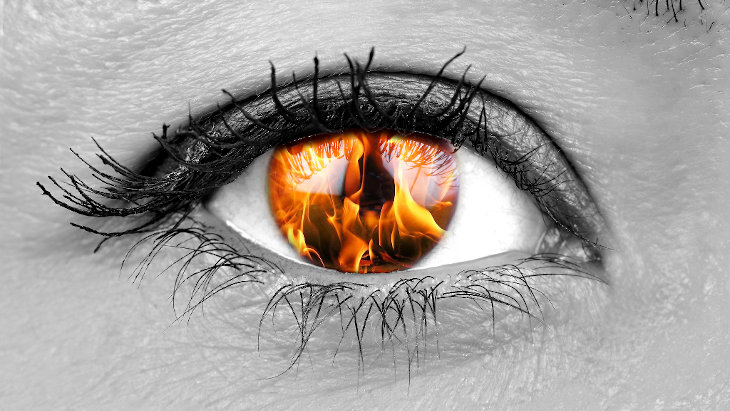 Vampire Weekend's Surprising Jewish Stories
Vampire Weekend's Surprising Jewish Stories


5 min read
Hanukkah teaches us how to see beyond the surface.
A husband and wife are getting ready to go to sleep. The wife is ready to close her eyes but her husband is standing and staring at himself in the full-length mirror. “What’s the matter with you?” she says. Come to sleep already.” He turns to her and says, “Look at this, I am so depressed. All I see is a receding hairline, a growing gut, and wrinkles under my eyes and what hair I have left is grey. Tell me something positive, something uplifting so I can go to sleep.”
She thinks for a moment and says, “Well the good news is your vision is still 20/20.”
There is a very strong association between Hanukkah and the sense of sight, of seeing. As we sing each night of Hanukkah, the candles are sacred; we don’t have permission to benefit from their light but their purpose is simply to be looked at. Moreover, we have a unique law on Hanukkah: one who can’t light for himself or herself and sees the candles of someone else nevertheless makes the second blessing "Who performed miracles for our fathers." When I see someone put on tefillin, take a lulav, or blow shofar, I don’t make a blessing. Only on Hanukkah do I make a blessing when seeing someone else do the mitzvah. Why?
Rabbi Levi Yitzchak of Berdichov tells us that Hanukkah is the holiday of seeing. The different holidays correspond with our different senses. On Purim our hearing is heightened as we listen to the Megillah. On Passover our sense of taste is sharpened when we eat matzah and marror. On Hanukkah, he says, we evaluate our sense of sight, testing how well we see.
What kind of seeing are we honing? It is not our physical sense of sight. Indeed, in a sort of paradoxical way, our eyes are a liability. We often feel that “seeing is believing.” If I can perceive and observe it, it is true. If I can’t, it is not real. Following this rule, we have dismissed and disregarded the most precious truths and realities in our lives. There are ideas, feelings, thoughts and dreams that are authentic and genuine, despite the fact that they can’t be seen or observed.
Our Rabbis describe the Greek empire and Hellenist influence as choshech, darkness. In expounding on the opening verses of the creation story, the Midrash Rabbah says "'darkness upon the surface of the deep' – this refers to the Greek exile that occurred during Hanukkah. Moreover, our Rabbis taught that darkening our eyes was the goal of our Greek oppressors.
What is the difference between a room that is filled with darkness versus one filled with light? Is there any change to the room itself? Whether the light is on or off in the room, the furniture remains the same, the layout of the room, the placement of the door, and the height of the ceiling are a constant. What, then, is the difference between the light being on or off in my room – just my perception, my ability to identify and see the reality, the truth and that which was right before me all along. Hanukkah is about seeing things, people, ideas, and miracles that are really right in front of us, even though we may not be able to visibly see them.
George Orwell once wrote: “To see what is in front of one’s nose needs a constant struggle.” One can live with their eyes open, perfect vision and the light on and still be cloaked in darkness. On the other hand it can be pitch black all around and yet a person can see absolutely clearly. The Hasmoneans didn’t see their few numbers, weak army, and impossible task. They saw the mighty hand of God, they saw the obligation to fight, and they saw Divine protection that would accompany them.
Hanukkah is about lighting the candles and using them to harness our sight – our deep vision of what is true, precious, and dear. When we look at our spouses and children, do we see the amazing blessing of their presence in our lives or do we hear lots of noise, see rooms that need to be cleaned up, and a messy house? When we face a challenge do we see no way out or an opportunity to further lean on our Creator? There are truths all around us; it is up to us to decide what to look at and how to see.
As we celebrate Hanukkah this year, it is hard not to be acutely aware of what is happening around us. Corona numbers are going up, many places are experiencing a third wave of disease. People have been devastated financially, by loneliness, and in so many other ways.
But even in this challenging 2020, we can still choose to see with 20/20 vision. We can focus on the truths that are all around us not visible to the naked eye. Let us use the light of the Hanukkah candles to inspire us to see the positive, the good and the blessings, even in a year that requires us to look a little harder.
